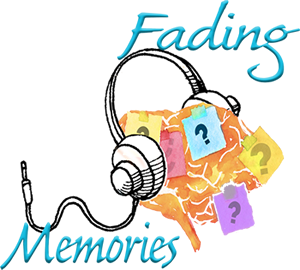Stress & anxiety relief through music therapy is definitely something you can do at home. There is abundant research that proves listening to music helps to reduce our levels of anxiety. Anxiety, one of the most common, and most devastating, of all mental conditions, has become somewhat of an epidemic in modern-day society.
What is the leading cause of anxiety? The enormous amounts of stress in our lives. This is because stress builds up and up and, if left untreated or unaddressed, results in us becoming anxious about certain situations.
Living with cognitive failure has to be one of the most anxiety-producing situations any of us may face. Confusion and fear definitely cause a high level of stress. However, by lowering our stress levels through listening to music, we can ultimately reduce the anxiety we suffer in our everyday lives. And you can do this anywhere.
Both caregivers and their loved ones can easily incorporate at-home music ‘therapy’ to improve their daily lives. Listening to music can have the same positive effects as mood-altering medication without the negative side effects. It can have a powerful effect on both our emotions and body. Music is something that almost anybody can access which makes it an easy stress reduction tool.
Determining what type of music has the biggest benefit isn’t terribly difficult. First, it has to be music you like. The best way to determine the style of music you find most effective is to take a “sound bath”. “Bathe” your brain in different types of music to see what resonates best with you and your loved one.
First, a bit of research to guide you.
Music that is around 60 beats per minute allows the brain to sync up with the beat inducing Alpha brain waves. Alpha brainwaves are present when we are relaxed and conscious. If you’re looking for music to help induce sleep you’ll want something with approximately 20-25 beats per minute. You may have to devote up to 45 minutes in a reclined and relaxed position to achieve sleep. It is important to remember that quieting your mind does not mean you will automatically feel sleepy. It means your brain and body are relaxed, and with your new calm self, you can then function at your best in many activities.
Some find it surprising that Native American, Celtic, Indian stringed-instruments, drums, and flutes are very effective at relaxing the mind even when played moderately loud. Sounds of rain, thunder, and nature sounds may also be relaxing particularly when mixed with other music, such as light jazz, classical, and easy listening music.
Finding music that fits the beats-per-minute recommendation is easier with online streaming. Most streaming services (I use iTunes) have playlists based on mood. For example, iTunes has playlists for feel good, focus, chill, and sleep.
The sleep playlists offered include one called Classical Sleep. It has 49 songs and over 4 hours of music. Within just the sleep section there are thousands of hours of music & sounds. You are certain to find many options that you like.
How To Use Music for Stress Relief
You’ve discovered what styles of music you resonate with, now it’s time to put your personal music therapy into action. Music can help you wake up while keeping you calm and focused. If you have a big, busy day ahead that requires extra energy, try something that's upbeat and makes you want to dance and smile.
Playing upbeat music while doing chores, cooking, even eating can enhance your daily well being. Get creative! Make different playlists for all the different daily activities you do.
Short dancing clip
Bill Protzman
TRANSCRIPT
Help Support Fading Memories
We have partnered with Caregiver Chronicles to bring you a comprehensive 8-week course. This course covers diagnosis to transition. To learn more or to sign up go HERE
Some details about the course.
Payment options include: PayPal paypal.me/caregiverchronicles or Venmo @dryvette-jackson
…


